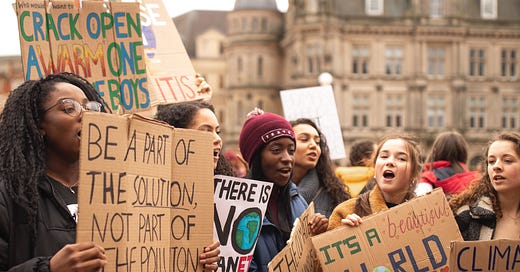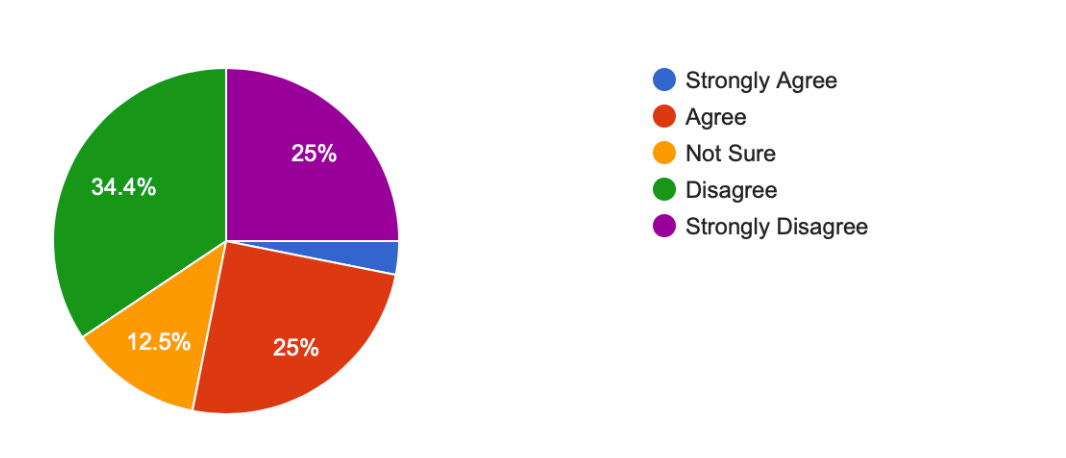Generation Green: For or Against ‘Insulate Britain’?
New survey reveals that 88% of Gen Z have made lifestyle changes to combat climate change and 46% have previously taken part in peaceful protests.
It is widely accepted that growing up alongside social media platforms, and increasingly diverse media representation globally, has resulted in Gen Z becoming the most open-minded and environmentally-conscious liberal generation thus far in our current society.
Gen Z have been branded ‘Generation Green’ out of their amount of concern for the climate crisis as a recent Deloitte survey reported that climate change is one of Gen Z’s main concerns, alongside unemployment and healthcare.
In a recent survey, it has been revealed that 88% of 16-24 year olds have made at least some lifestyle changes to combat climate change, with 57% saying they’ve made medium-large changes such as only shopping sustainably, changing their diet and reducing waste.
However, with Insulate Britain protesters causing outrage in the eyes of the police, government and the public, have they done enough to win over ‘Generation Green’?
Insulate Britain is a campaign calling for British housing to be insulated by 2030 to decrease energy consumption in an effort to combat the climate crisis that is currently crippling the planet. While 78% of Gen Z agree with this campaign, the same percentage agree that the protesters are NOT working effectively.
Since September 13th, members of the ‘Insulate Britain’ campaign have been protesting their cause by blocking roads across the UK such as the M25 and other major roads/motorways. The protesters have taken measures such as refusing to leave when requested and also glueing themselves to the roads. According to Insulate Britain, approximately 690 arrests have been made in this time due to the disruptions these protests have caused for the public.
In the past, Gen Z have not been opposed to peaceful protests. The Black Lives Matter protests in June 2021 were led and attended by a Gen Z majority, where 36 were arrested for disruptions.
Within our survey, we found that 100% of 16-24 year olds agree with non-violent protesting with 46% having previously taken part in a peaceful protest.
Despite this, 78% of Gen Z agree that the current protests are doing more harm than good and the same amount believe that these protests will not cause change.
It seems that the main point of Gen Z’s disapproval comes from the fact that ambulance’s and those on their way to the hospital have been caught in gridlock traffic, preventing them from helping people in need. In one severe case a woman had a stroke and became paralysed as the drive to the hospital took them six hours due to the blockages created by protesters. The protesters have also been accused of working against their cause by increasing pollution from the consequent traffic congestion generated by their road blockades.
It is not only the public that are suffering from these protests but the protesters themselves are taking extreme and stubborn methods to get their point across. On November 29th, Emma Smart, an arrested protester, was taken to hospital after her 13 day prison hunger strike made her fall ill.
So how should the situation be handled? After almost three months of protesting, the police have made many arrests, but the disruption continues. We asked Gen Z:
Do you agree that the police have the right to take action against the protesters?
Do you agree that the police have the right to use brute force against the protesters who refuse to move?
Do you agree that the affected civilians have the right to take action against the protesters?
Do you agree that the affected civilians have the right to use brute force against the protesters who refuse to move?
Partnering with energy and insulation companies, contacting the government and protesting outside parliament are just some of the alternate ways our survey participants suggested as better and more effective strategies for the Insulate Britain campaigners to protest while still keeping Gen Z on their side.








